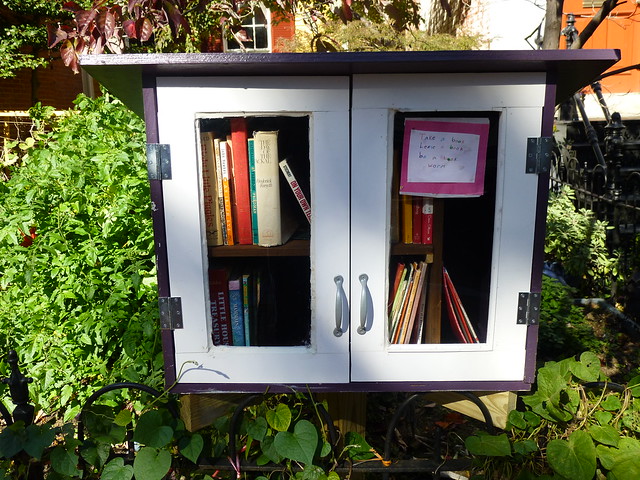by John M. Floyd
Gimmicks in naming novels have worked for other authors, too: Evanovich's numbers, Patterson's nursery rhymes, Michener's place names, Sandford's "prey" series, Ludlum's three-word titles, MacDonald's colors, Grimes's English pub names. Sounds pretty smart to me. When your titles become a kind of signature, a flag that alerts readers right away that you have a new offering, that can't be a bad thing.
It was an alphabet gimmick that enticed me, several years ago, to do something that I almost never do: enter a contest.
As I have said before, I'm not fond of contests for writers. For one thing, the odds are terrible. You have a far better chance of publishing a story in a respectable market than of winning first place in a major contest. Second, they often charge entry fees, and I don't like paying fees of any kind to anyone, ever, to consider my work. Third, they usually take a long time to respond. I don't like to tie up otherwise marketable stories for an extended period. Fourth, they always require manuscripts that haven't been previously published. That's understandable, but I'd rather send my original stories to the bigger magazines and anthologies since they usually prefer first rights.
A is for Against my better judgment . . .
I was hooked. Whether I liked contests didn't matter much, anymore; this sounded like fun. This was of course not a contest for "real" stories--you can't write a real story in 26 words--but I thought it was good practice for writing real stories. A great exercise in how to do the kind of thing that authors, especially short-story authors, must do. They have to choose and use exactly the right words, for the simple reason that there's not enough room to use the wrong ones.
Alphabet Souperman
After some searching, I dug up the notes that I took while working on that project, and if you have some headache pills and antacid nearby, I invite you to sample the possible contest entries I came up with. Please be aware that I myself am aware that my following six "stories" are not only bad--they're even worse than the one I finally decided to send in, which wasn't all that great either. But here are the results of my alphabetized brainstorming:
A baboon cage, discovered empty. Facility gurus hired investigator JoNell Kendrix. "Lost monkeys," Nell observed. "Probable quick reasons: smuggling, theft, utter villainy. Who, Xactly? You, zookeeper!"
Alakazam Books Corporation. Dear Editor: Findings gathered here include Jack Kerouac's lost manuscript. Numerous other publishers queried. Respectfully submitting this unique volume, waiting Xpectantly. Yvonne Zimmerman.
All Balkan country doctors exhibit frequent generosity, high intelligence, jovial kindness, likable manner. Numerous other physicians quite regularly seem to undertake video work--Xample: Yuri Zhivago.
All Balkan country doctors exhibit frequent generosity, high intelligence, jovial kindness, likable manner. Numerous other physicians quite regularly seem to undertake video work--Xample: Yuri Zhivago.
Alphabetically blessed children don't ever feel glum. However, insecure jaded kids like me (named Oliver Prattlebloom) quite rarely say things. Unless: "Very well, Xavier," "Yes, Zachary."
Argentine bomber commander DeKarlo Evito felt gratitude. Huddled in jail, Karlo (listed Murderer Number One)--pardoned--quickly renounced sabotage, terrorism, undue violence: "When Xecuted, you're Zero."
A British conservationist detected evidence featuring green horses, indigo jackasses, khaki-like mules, nags often painted quirky red shades--therefore, unbiased veterinarians will Xamine yellow zebras.
And the Oscar goes to . . .
Again, those were the stories that I decided not to send in. (Feeling a little nauseated? Don't say I didn't warn you.) The masterpiece that I finally submitted was appropriately mystery/suspense-themed--I called it "Mission Ambushable":
That one actually won second place in the contest. I was awarded a thirty-dollar gift certificate to Amazon, which I happily used within ten seconds of receiving it, in case they decided to change their minds. (By the way, the story that won first place was just as goofy as mine. Seriously.)
What did we learn today, Johnny?
All this taught me three things. (1) Never say never, on the subject of contests or anything else, (2) tasks that challenge the old noggin's ability to play with words are never a complete waste of time, and (3) nothing in the writing world--no matter how improbable--is impossible. Who says you can't write a 26-word story?
Have any of you ever entered a contest like this one, or tried an exercise like this? If so, did you find it interesting? Enjoyable? Profitable? What are your views on writing contests in general?
I haven't changed my views, by the way--I still think it's better to send your fiction manuscripts to paying publications. I justified my participation in the alphabet contest because a 26-word story, no matter how quirky, is not a marketable story.
As easy as ABC
I haven't changed my views, by the way--I still think it's better to send your fiction manuscripts to paying publications. I justified my participation in the alphabet contest because a 26-word story, no matter how quirky, is not a marketable story.
As easy as ABC
With regard to yesterday's anniversary of an American tragedy, I couldn't resist rewriting one of my above contest entries:
American Broadcasting Company, Department Executives: Footage gathered here includes John Kennedy's last moments. No other producers quickly responded, so this unedited video will Xcite you. Zapruder.
My final thought:
American Broadcasting Company, Department Executives: Footage gathered here includes John Kennedy's last moments. No other producers quickly responded, so this unedited video will Xcite you. Zapruder.
My final thought:
Alas, Boring Columns Do Eventually Finish.





















